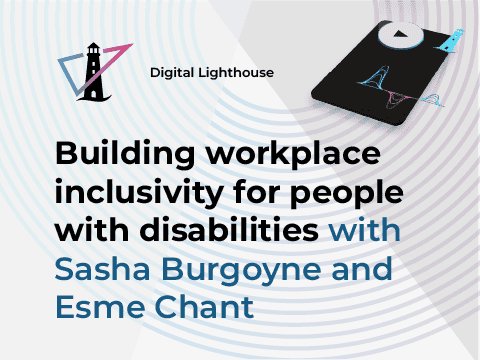
Story of my life
Every time I hear “Hey, could I ask you something?” I feel a familiar sting of anxiety. It doesn’t matter that the questions are coming from interns with no experience in the industry, while I have several years of professional experience under my belt. Whenever I’m asked a question, I brace myself for inevitable humiliation: for that quick second I’m completely confident that I won’t have the answer, that the interns will make fun of me for not knowing the answer that someone senior to me will overhear the conversation and be thoroughly disappointed in my lack of professional skills and knowledge.
What actually happens next, though, is as soon as I hear the question, I often go “Oh, yeah, I suspect this is the issue”, and the problem is resolved in a matter of minutes. Even if I don’t know the answer straight away, several minutes of research is often enough to find a solution, and that’s the end of the situation. There are no fingers pointed, no jokes made, and no senior is shaking their head in disbelief – in fact, the feedback I get from the interns is that I always seem like I know what I’m doing and have it all under control.
For a woman in a male-dominated industry, and for someone who comes from a non-technical background, this is an all-too-familiar story. I’ve suffered from mild impostor syndrome ever since high school, and never thought it a big deal. Yes, some confidence issues, yes, I don’t feel very comfortable owning my achievements, yes, standing up to others feels scary; but none of those ever felt too detrimental to my career progression and wellbeing.

Reaching the breaking point
But after starting my career as a software engineer, the intensity of my impostor syndrome increased tenfold. At first came general anxiety about leaving my comfort zone, which I brushed off, expecting it to be normal. Months and years passed, and not only would the feeling not go away – it got progressively worse, transforming from a general feeling of unrest into something more personal, more twisted. The thought constantly ringing in my head wasn’t “I don’t know what to do” anymore, it was “I know what to do, but I fear that it’s wrong”, which felt worse – you can fix not knowing something, but how do you fix knowing it, while never being sure whether what you know is right?
I was about a year and a half into my career when the severity of the situation finally got to me. I was in a career review meeting, I was told that I’m being promoted, and my first instinct was to ask: “Are you sure it’s a good idea?” Luckily, I caught myself in time and didn’t say it out loud, but it got me thinking – how ridiculous is it that I’m so quick to devalue my achievements, even when people around me are happy to recognise them? I’m meant to be my own biggest supporter, how come I ended up becoming my own worst hater?
Soon after I had this realisation and started to vaguely think about how to deal with it, Softwire’s People Team announced a new programme for employees called LevelUp. From the description it was exactly what I needed – a course created for women in tech roles by Jo Phillips, a career development coach, aimed at helping them develop skills needed to thrive in today’s competitive professional landscape.
Levelling up
Looking back, I can now say that joining the programme has been if not life-changing, then definitely career-changing for me. I want to preface this section by saying that the course was no miraculous cure – it didn’t give me a one-liner answer to my questions or one-size-fits-all exercise that fixed my mental health. What it did do, however, is make me more aware of the limitations I subconsciously set for myself and how I could start to undo them.
Furthermore, it gave me an insight int how widespread and deep-rooted the problem actually is. Seeing women in very senior roles, like the delivery lead from my own project, enter the room where the sessions were held, and then hear them voice the same fears and concerns I had, was unbelievable and sad at first and, in a weird way, comforting later. If these capable, skilled women, who I have endless respect and admiration for, are feeling the same way I do, then it must mean the feeling is just straight up wrong.

More than that, it made me feel like I wasn’t alone in this struggle anymore. Yes, I knew from articles and interviews that many people suffer from impostor syndrome and confidence issues, but seeing my colleagues exchange understanding, compassionate glances when someone says “I don’t feel comfortable asking questions in a room full of people” made me feel it on a new, deeper level.
Apart from arming me with insight, the course also gave me a selection of exercises I could use to deal with my emotions and intrusive thoughts when they become too much to handle, and to slowly eradicate them from my mind. Some of them didn’t work for me, and the ones that I did find useful may not have worked for others, but it was great to finally have something I could action.
Again, it’s important not to see these exercises as a magic spell – putting them to use is a long, painstaking process that is not going to be pleasant or even comfortable, but to me it was important to win back some sort of control over my mind and the thoughts it produces.
My top three exercises for banishing intrusive thoughts
- Write them down word for word
My favourite exercise is writing down the intrusive thoughts I’m experiencing right now, word for word, on a post-it note, and then seeing if I can find an objective foundation for it. If the answer is no, then I cross the thought out. I know nothing about what’s being discussed in this meeting, therefore I bring no value to this conversation. This is something I’m meant to know already, so if I ask about it, someone will laugh at me. I shouldn’t write this message in such a confident tone – I have no right to sound so confident. Often I end up with a piece of paper covered in crossed-out text and feel a wave of satisfaction wash over me. I use this as a kind of emergency relief, when I feel like I’m spiralling down in anxiety because of work-related worries.
- One good thing this week
My second favourite, which, mind you, is not because I enjoy doing this, but because it works, is a positivity journal. I discovered that for me it works best if I keep it brief. The way I do it is this: every Friday I write down one positive thing that happened this week. It’s important that the thing happened because of you – rather than writing about a lucky occurrence, try writing up a piece of nice feedback someone gave you or a small personal achievement you felt proud of. Re-reading these notes when you’re feeling down and scared has been great for bringing my mood up.
Another benefit of a positivity journal is getting used to seeing and accepting positive feedback about yourself. Personally I instinctively discard any good comments as “people being nice to me” and latch onto points for improvement instead. I know for a fact I’m doing well at work – I’m getting great feedback from my colleagues and my manager; I’m learning a lot, to the point where I can teach other people; I’m making good progress in my career. However, accepting that fact emotionally, and learning not to cringe when reading nice things other people have to say about me, has been incredibly challenging, and a positivity journal has been a useful tool in overcoming that.
- Don’t listen to Scrooge McDuck
Lastly – something that’s been entertaining for me as well as helpful – is giving the evil voice in your head a character. The premise of this exercise is that it’s easier to discard negative feedback from someone who you can’t take seriously, and ideally you want that characterisation to happen automatically every time intrusive thoughts pop up in your head. That has taken some time and practice, but eventually I discovered that if it’s Scrooge McDuck whispering all those mean words to your ear, it’s much more difficult to take it seriously!
Now, I want to reiterate that practicing these exercises is no easy task. Voicing my fears out loud, reading generous compliments from my manager, recognising my own achievements – all of those make me feel like I’m an ATM being fed a wrinkly banknote. I catch myself looking for reasons to avoid the exercises all the time, and in most cases, those are just excuses. However, I can guarantee that if you power through those feelings, it will get easier. Will the discomfort and cringe and fear ever go away? I don’t know, I’m not there myself yet, but I promise – if you put effort in, it does get better.
It’s time to fight back
“Impostor syndrome”, “confidence issues”, “intrusive thoughts” – these days it’s very common to see these terms thrown around, and I feel like this takes away from how serious these struggles are. It’s no joke, to wake up day after day and have to power through your work shift while your brain is screaming abuse at you.
But if there’s one thing I’d like you to take away from this, it’s that you can fight back. It’s not going to be easy, but you’re not alone – and programmes like LevelUp are incredibly important in today’s competitive professional environment, both for raising awareness about the issues and arming us with methods to fix them.


